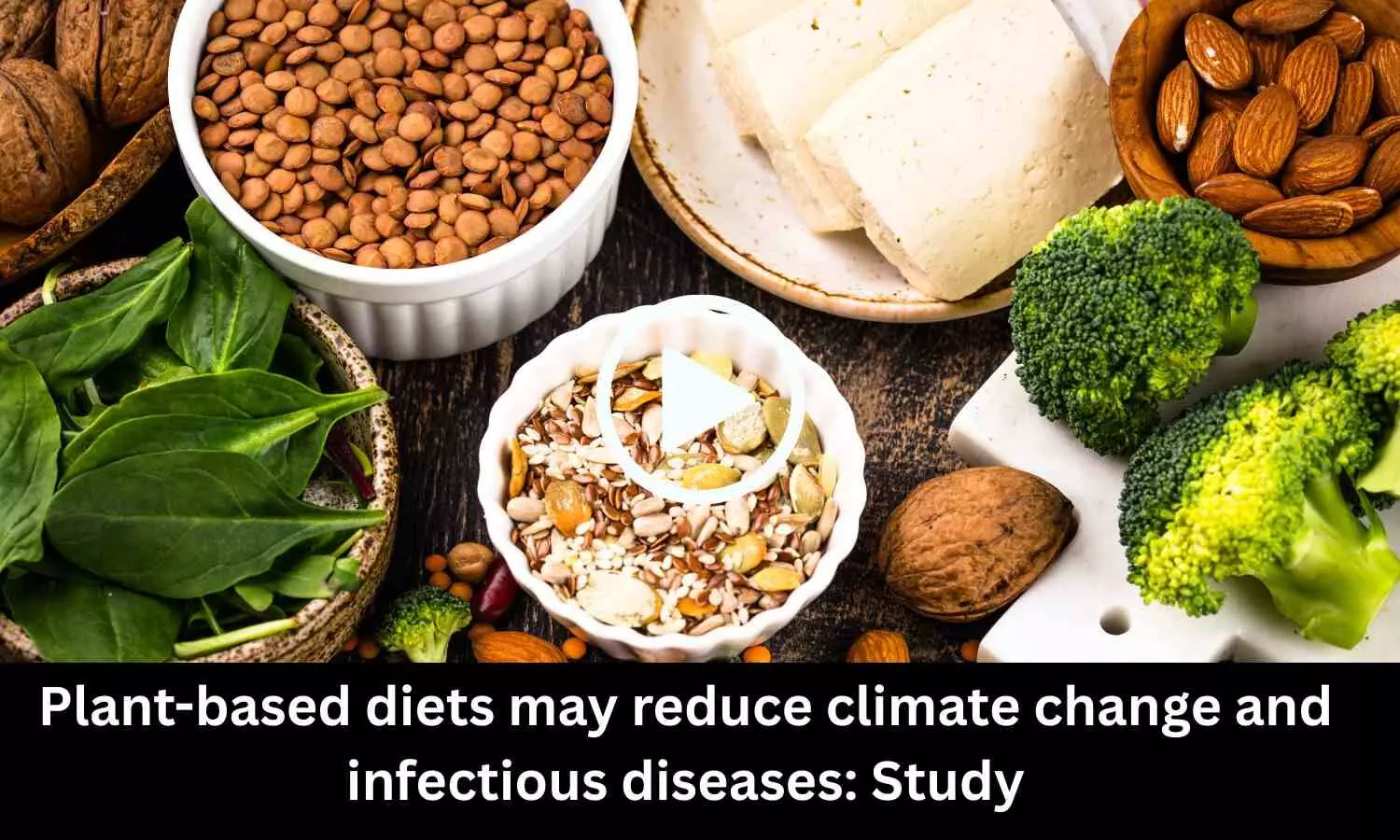Plant-based diets may reduce climate change and infectious diseases: Study
- byDoctor News Daily Team
- 30 October, 2025
- 0 Comments
- 0 Mins

A new review published inOpen Forum Infectious Diseasesemphasizes that reducing global reliance on animal agriculture could simultaneously slowclimate changeand curb the spread of infectious diseases. Conducted by researchers from Virginia Commonwealth University, the review explores how meat production contributes to greenhouse gas emissions, antimicrobial resistance, and the increased risk of zoonotic diseases. It advocates plant-based diets as a sustainable alternative with profound health and environmental benefits. Plant-based diets, which emphasize fruits, vegetables, legumes, grains, and nuts, are known to reducechronic diseaserisk and improve longevity. As the global demand for meat rises, the review highlights the pressing need for health professionals, particularly infectious disease specialists, to encourage dietary transitions that are both climate-smart and preventive for disease. The authors analyzed data from the United Nations Food and Agriculture Organization, the World Health Organization, and peer-reviewed medical studies addressing environmental, microbial, and health outcomes. The review compiled global evidence linking livestock production to methane emissions, deforestation, antimicrobial resistance, and vector-borne diseases. It also evaluated epidemiological data on human health benefits associated with plant-based diets, including reduced risks of cardiovascular disease, type 2 diabetes, and infection severity. The researchers found that animal agriculture is responsible for over 30 percent of human-caused greenhouse gas emissions, with cattle producing nearly half of all global methane output. Between 2001 and 2015, cattle farming accounted for twice as much deforestation as all other agricultural activities combined, increasing mosquito habitats and promoting the spread of malaria and dengue. Additionally, 65 percent of antibiotics sold in the United States are used for livestock, accelerating antimicrobial resistance through contaminated soil and runoff. In contrast, plant-based diets were linked to lower inflammation and improved immune function. Studies cited in the review showed reduced risk of respiratory infections and milder COVID-19 outcomes among individuals following plant-based or pescatarian diets. The authors argue that even modest shifts toward plant-based eating could yield substantial benefits: a 25 percent reduction in meat consumption in the United States could lower greenhouse gas emissions by 1 percent annually. Lead author Dr. Melissa Whitman emphasized that healthcare providers hold a key role in dietary counseling, encouraging gradual transitions that promote patient health and planetary sustainability. REFERENCE:Whitman, M., Barajas-Ochoa, A., Sastry, S., Bearman, G. (2025). Plant-based diets and climate change, a perspective for infectious disease providers. Open Forum Infectious Diseases, 12(10): ofaf222. DOI: 10.1093/ofid/ofaf222. https://academic.oup.com/ofid/article/12/10/ofaf222/8109731
Disclaimer: This website is designed for healthcare professionals and serves solely for informational purposes.
The content provided should not be interpreted as medical advice, diagnosis, treatment recommendations, prescriptions, or endorsements of specific medical practices. It is not a replacement for professional medical consultation or the expertise of a licensed healthcare provider.
Given the ever-evolving nature of medical science, we strive to keep our information accurate and up to date. However, we do not guarantee the completeness or accuracy of the content.
If you come across any inconsistencies, please reach out to us at
admin@doctornewsdaily.com.
We do not support or endorse medical opinions, treatments, or recommendations that contradict the advice of qualified healthcare professionals.
By using this website, you agree to our
Terms of Use,
Privacy Policy, and
Advertisement Policy.
For further details, please review our
Full Disclaimer.
Recent News
Japanese researchers suggest cheese consumption ma...
- 30 October, 2025
Obesity-linked cancer cases rising among young and...
- 30 October, 2025
Plant-based diets may reduce climate change and in...
- 30 October, 2025
Daily Newsletter
Get all the top stories from Blogs to keep track.


0 Comments
Post a comment
No comments yet. Be the first to comment!